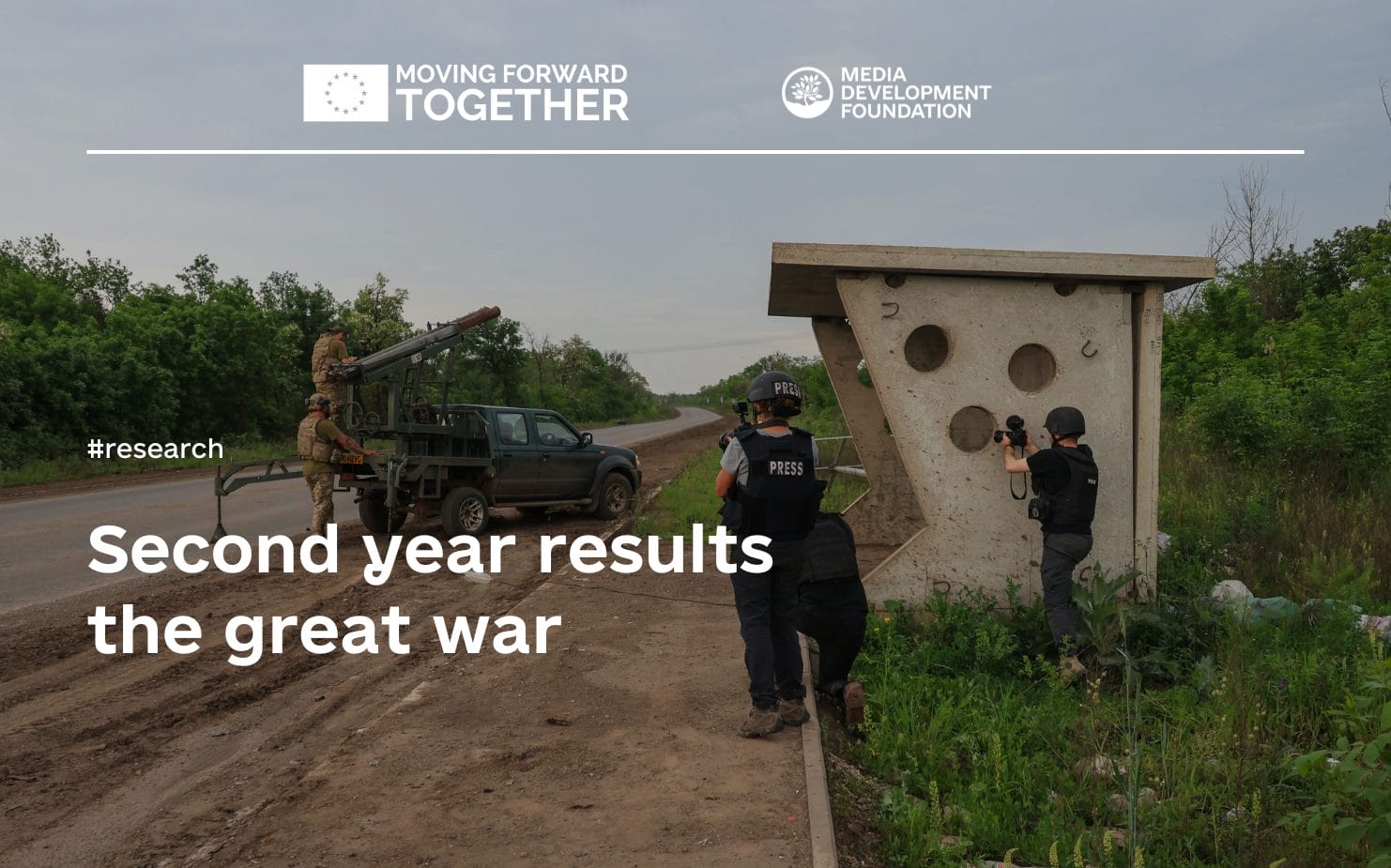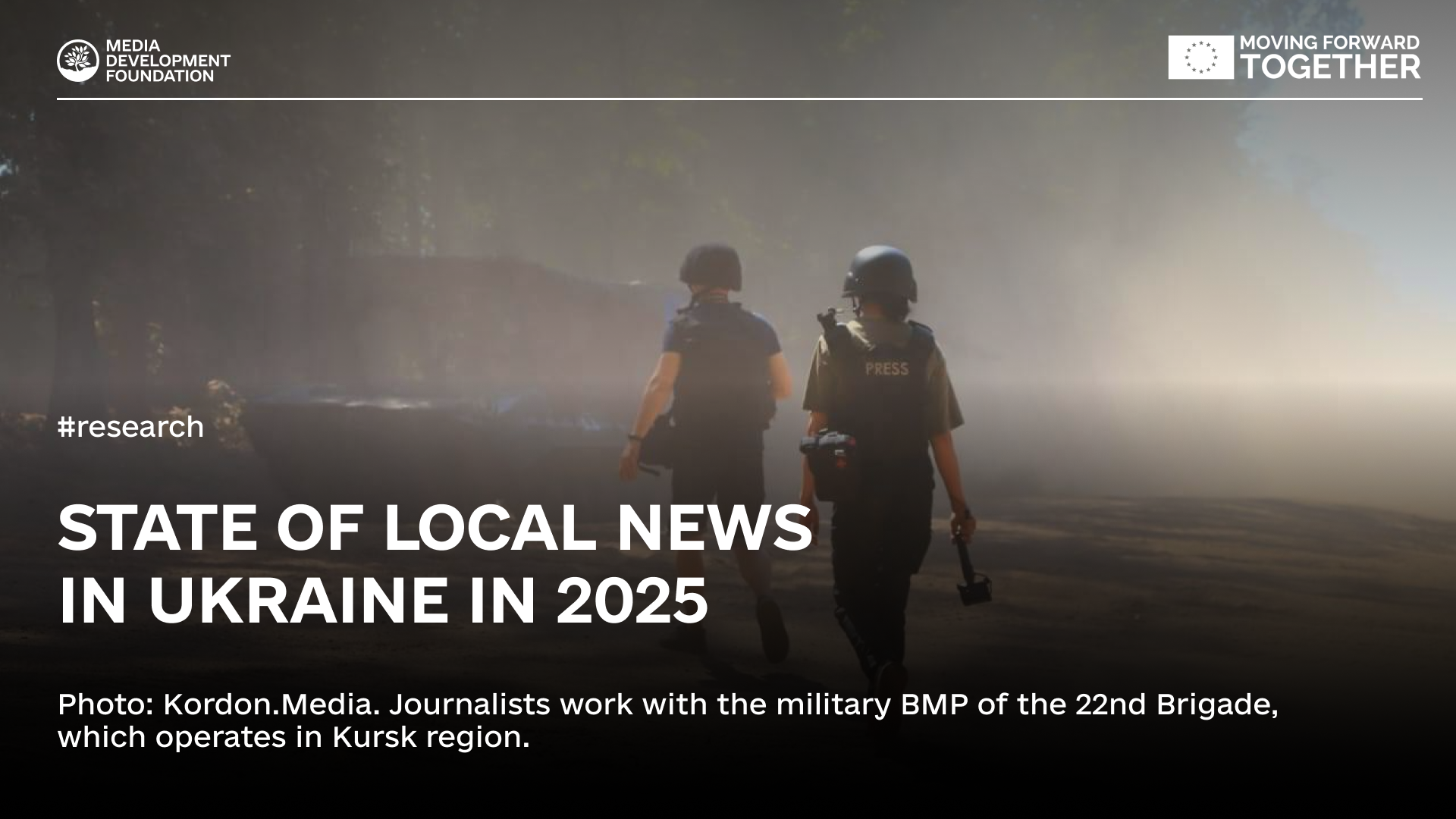How regional media has changed in the second year of the great war – researchers from the Media Development Foundation interviewed 43 editorial offices to track the dynamics of risks.
Data of State of Local News in Ukraine suggest that the key challenges for local editorial teams under martial law have remained persistent over the past two years.
The staffing crisis is worsening. This year, 22% of respondents reported a shortage of workers, compared to 16% in last year’s survey. Mobilization also contributes to the staffing crisis, with nearly every editorial team experiencing forced departures.
Funding deficit remains a key challenge for independent local media. Currently, 60% of surveyed editorial teams operate with budgets comprised of 80-100% donor support. For media outlets in western, central, and northern regions, there’s an additional risk due to the noticeable trend of grant programs concentrating on frontline territories.
Psychological support is an urgent need for journalists. The psychological well-being of editorial teams is considered a key risk (18% this year and 16% last year), as it impacts work efficiency and staff turnover.
The number of those with a plan for “after the victory” has been declining for the second year in a row (51% of them now compared to 64% in April 2022). This means that fewer and fewer media outlets are thinking in the paradigm of the “temporary” nature of the war. Media outlets consider the future to be inextricably linked to the continuation of combat actions, and further planning is already underway taking these conditions into account.
This research was created and maintained with the financial support of the European Union. Its contents are the sole responsibility of Media Development Foundation and do not necessarily reflect the views of the European Union.










